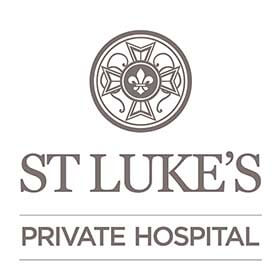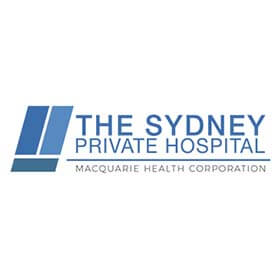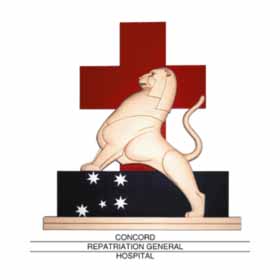Once you and I decide that surgery will help you, you will need to learn what to expect from the operation and also create a treatment plan for the best results afterward.
Preparing mentally and physically for surgery is an important step toward a successful result. Understanding the process and your role in it will help you recover more quickly and have fewer problems.
Work WITH Me
Before surgery, please discuss with me any conditions that could interfere with the surgery or its outcome. Routine tests, such as blood tests and X-rays, are often performed before the operation.
Discuss any medications you are taking with me and your GP to see which ones you should stop taking before surgery.
Blood transfusion is rarely required for the surgery I perform.
If you are overweight, losing weight before surgery will make the anaesthetic safer and help decrease the stress you place on your new joint or repair.
If you are taking aspirin or anti-inflammatory medications, you will need to stop taking most of them ten days before surgery to minimize bleeding. Mobic and Celebrex can be continued until the day prior to your surgery for an arthroscopy but should be stopped 3 days prior to a joint replacement operation.
If you smoke, you should stop (ideally for 2 weeks prior to and 6 weeks after your operation) to reduce your anaesthetic and surgical risks. Smokers have higher complication rates including infection, delayed wound healing rates and delayed bone growth and soft tissue healing.
Please have any tooth, gum, bladder or bowel problems treated before surgery to reduce the risk of infection later.
Eat a well-balanced diet and report any infections to me. Elective surgery usually will not be performed until all infections have cleared up.
Home Planning
Arrange for someone to help out with everyday tasks like cooking, shopping and laundry.
Put items that you use often within easy reach before surgery so you won’t have to reach and bend as often.
Remove all loose carpets and tape down electrical cords to avoid falls. Make sure you have a stable chair with a firm seat cushion, a firm back and two arms.
Preparing For Day Surgery
If you are having Day Surgery, remember the following:
- Have someone available to take you home – you will not be able to drive for at least 24 hours because of the anaesthetic.
- Do not drink or eat anything in the car on the trip home – the combination of anaesthesia, food and car motion can cause nausea or vomiting.
- After arriving home, wait until you are hungry before trying to eat. Begin with a light meal and try to avoid greasy food for the first 24 hours.
- If you had surgery on an extremity (elbow or knee), keep that extremity elevated and use ice as directed. This will help decrease swelling and pain.
- Take your pain medicine as directed. Begin the pain medicine as you start getting uncomfortable. Do not wait until you are in severe pain. If you wait until the pain is severe to take your pain medication you will have more difficulty controlling the pain.
If you have any questions please call one of my offices. If you have an urgent problem out of office hours, please contact the hospital where your surgery was performed. During office hours please call the office and speak with one of my staff.
After hours, please call Prince of Wales Private Hospital on 9650 4495, St Lukes Private Hospital on 9356 0200, Sydney Private Hospital on 9716 3500 or Concord Public Hospital on 9767 5000 depending on where you had your surgery.
FAQs
The only change to your usual routine in the week leading up to the operation should be using a chlorhexidine based skin wash when you shower. Do NOT shave the shoulder or apply creams to remove hair from you shoulder. Be careful not to get sunburned or scratch the area. If it is necessary we will clip the hairs from your skin or armpit immediately before the operation.
In most cases the sling is there to protect the repair that has been performed. It should be removed for showers only and worn while sleeping. Even sitting watching TV you should wear the sling to protect you from any reflex movements such as reaching for a falling remote control. I will inform you if it is OK to remove the sling for any length of time.
Some operations require early movement but some time resting in the sling and if this is the case I wil give you instructions about how much you can be out of the sling.
Sleep can be challenging for the first 3 weeks after surgery. It tends to improve after that. Some patients do have difficulty finding a comfortable position to sleep. It is common for people to need to move from the bed to the couch to find a comfortable sleeping position. If you are sleeping on your back you may find it helpful to place a small pillow behind the elbow or shoulder to help support the weight of the shoulder. You are allowed to sleep on your side with the operated arm up but do not sleep on the operated arm unless I give you permission to do so. When you are getting in and out of bed or a chair, DO NOT use your operated arm to push down as this may damage the repair.
I do not believe that it is safe to drive one handed. I therefore suggest that you not attempt to drive until you are out of your sling. You should also be off strong pain killers and feel confident that you are in control of the vehicle you are driving. This is usually about 6 weeks after the operation. Please click here for more information
If your dressings remain sealed then please do not change them. Only change them if they are peeling off and allowing water to get to the wounds. This is rarely necessary. Your dressings will be changed the morning after the operation and should last until I see you about a week later.
This will depend on what work you do. As an office worker you may be able to return to work one handed after only a few days. If you need both hands for work you will need to be out of the sling to return to work. As a manual labourer or tradie you will need to wait for the repair to be strong enough to handle the load of what you are doing. This may vary from weeks for an acromioplasty to 6 months for a stabilisation procedure to 12 months for a rotator cuff repair. I will let you know when it safe to lift again.
Swelling and bruising are normal after any operation. This will be very variable depending on the size of the operation you have had and your response to the surgery. In some patients the bruising will travel down the arm and chest and sometimes as far as the forearm and hand. Please do not put any jewellery on the hand of the operated arm for a week or so after the operation. If you are concerned about the amount of swelling or bruising following surgery, please contact me immediately.



